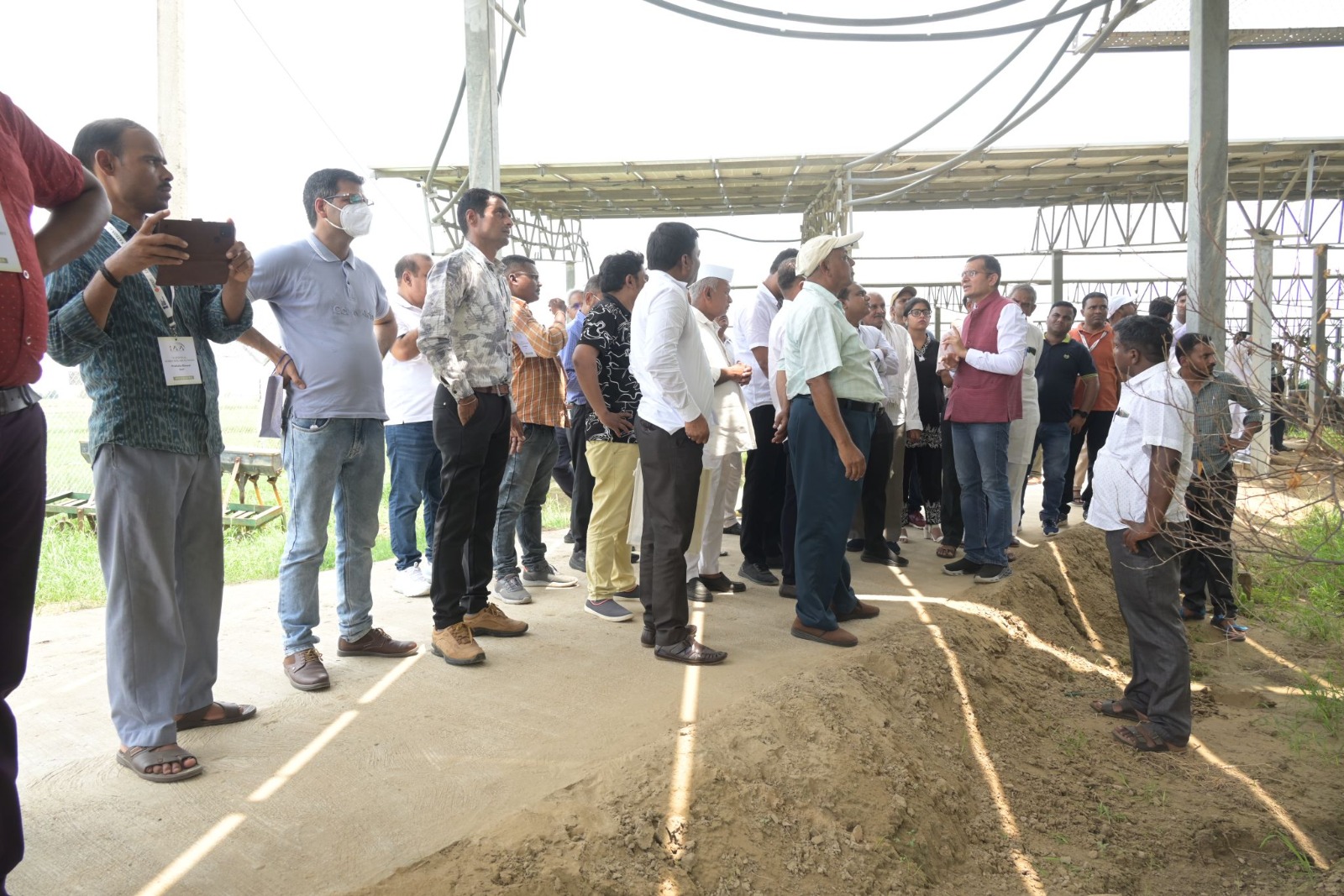"Empowering Farmers with Agrivoltaics: Harvesting Sunlight and Crops for a Sustainable Future"



The Energy Saving Trust, in collaboration with the National Solar Energy Federation of India (NSEFI) and the Ministry of New and Renewable Energy (MNRE), recently organized a pivotal workshop at our agrivoltaics plant in Issapur. The event brought together farmers from across India, with the aim of educating them on the transformative potential of agrivoltaics technology.
Agrivoltaics is an innovative approach that combines solar energy generation with traditional agricultural practices on the same land. By installing solar panels above crops, farmers can generate renewable energy while continuing to cultivate their land. This dual-use system offers multiple benefits: it provides shade that can reduce water evaporation, enhance crop yields by creating a more favorable microclimate, and generate a steady income stream from the sale of electricity.
During the workshop, experts from NSEFI and MNRE elaborated on the economic and environmental advantages of agrivoltaics. They explained how this technology not only maximizes land use efficiency but also contributes to reducing carbon emissions, supporting India’s ambitious renewable energy targets. Participants were also introduced to successful case studies where agrivoltaics has been implemented, demonstrating its viability and potential for replication across diverse agricultural settings.
The workshop emphasized the role of agrivoltaics in addressing the challenges of food security, energy access, and climate resilience. It highlighted the government's commitment, through initiatives supported by MNRE, to facilitate the adoption of such technologies, ensuring that farmers are at the forefront of India’s transition to a sustainable and energy-efficient future.
This initiative is a testament to the collaborative efforts between the Energy Saving Trust, NSEFI, and MNRE in promoting agrivoltaics as a key driver of sustainable agricultural development in India.